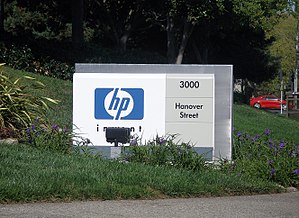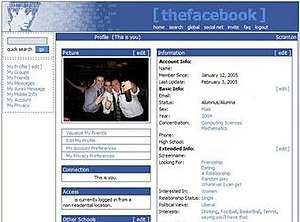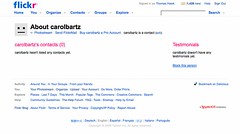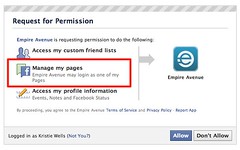 Image by Getty Images via @daylifeSleep is good. I've always been a fan though I generally have to make up for my lack of skill with enthusiasm and a good attitude. Thankfully I slept fairly well last night. That should translate into a little less mental fuzziness today. I can hope so anyway.
Image by Getty Images via @daylifeSleep is good. I've always been a fan though I generally have to make up for my lack of skill with enthusiasm and a good attitude. Thankfully I slept fairly well last night. That should translate into a little less mental fuzziness today. I can hope so anyway.On the tech front I wanted to briefly discuss a couple of things before getting ready for work.
First on todays laundry list is a story focused on RIM and their Playbook tablet. You can find the text at the following link...
http://blogs.wsj.com/digits/2011/09/30/tech-today-rim-didn%E2%80%99t-know-what-to-do-with-its-tablet/
The gist of the story is that there was internal disagreement over who they were going to sell the Playbook to and over the direction the company was taking. Just a few years ago smart phones with almost exclusively used by businesses and RIM's Blackberry phones were king. Heck, they are still very popular in that space. People tend to focus to much on the fact that RIM's market share is slipping and not enough on the fact that the market for smart phones has been growing rapidly. RIM is a profitable company and will likely continue to be for at least a couple more years. What happens beyond that point is murky though and the Playbook scenario outlined in the linked story explains why. On the one hand you had people in the company that wanted to target sales at corporate customers. The advantage of this approach is that you can price the tablet higher and play to your strengths if your RIM. You're not going to sell as many as you would if you successfully rolled it out to the masses but your margins will be larger and you won't be going head to head with Apple. The other alternative is to try to sell it to everyone. If you're going to do that you need to price it a lot more aggressively.
Either approach might have worked. Sadly for RIM they chose to "compromise" and price it like they were selling to corporate customers while attempting to sell it though mass market channels like BestBuy. The results have spoken for themselves.
Cisco also brought out a tablet called the Cius this year. Haven't hears of it? No surprise there if you're not using Cisco's call manager it's not very useful and they aren't selling it to consumers. It's very expensive relative to the iPad but it isn't meant to compete in that space. It's only been on sale for about a month and I can't find any news stories about how Cisco is doing sales wise but they are following the strategy RIM should have if they wanted to charge a price that clearly made them a worse value than the iPad in the consumer space. Getting your targeting and message right is so important in this space. Trying to compete with Apple if you haven't done that is basically pointless and a good way to lose a lot of money.
The other thing is a bit about the Kindle Fire. There are apparently rumors that it's going to be in limited supply this year. Bezos said as much at his press conference when it was announced. If true there are likely two reasons for this. First of all Apple has used its excellent cash position and operational excellence to secure much of the manufacturing capacity that is available. This leaves Amazon and other tablet makers picking up the bread crumbs.
The second possibility is that Amazon never intended to produce that many of this version of the Fire. They may have wanted to get something out the door quickly and this was their best alternative. It's a capable platform but much like the first generation Kindle I suspect the subsequent versions will be more capable and elegant devices.
The end result of either of those two reasons being correct is we may see a limited supply of Fire tablets this holiday season so ordering early may not be a bad idea. I have my order in already as I believe I mentioned yesterday. Another thought is that scarcity has worked well for Apple and Amazon may be charting that same course for themselves in regards to the Fire.
Time to get ready for work and get a few other things taken care of. Have a great weekend!




































